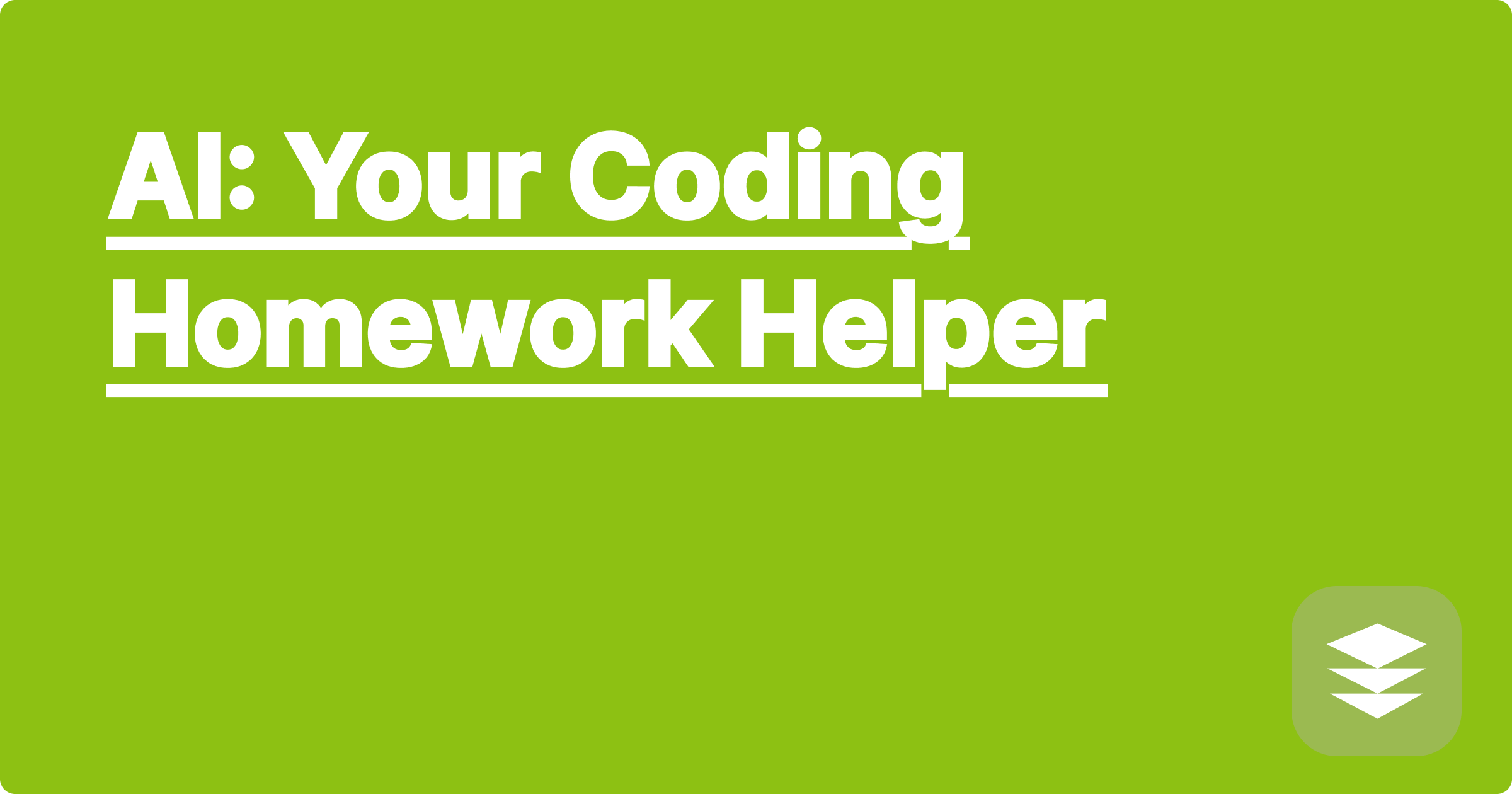
STEM fields often demand a significant amount of coding, presenting a considerable challenge for many students and researchers. The sheer volume of work, coupled with the complexity of programming languages and concepts, can be overwhelming. Artificial intelligence offers a powerful new set of tools to help navigate these difficulties, providing assistance with everything from understanding complex algorithms to debugging stubborn code. AI can act as a personalized tutor, offering explanations, generating code snippets, and even suggesting optimization strategies.
This is particularly relevant for STEM students and researchers who are often under pressure to master complex material quickly. AI can help bridge the gap between theoretical understanding and practical application, allowing students to experiment with different coding approaches and gain a deeper understanding of the underlying principles. For researchers, AI can automate tedious tasks, freeing up valuable time for more creative and impactful work. This shift towards AI-assisted learning and research is rapidly transforming the STEM landscape, offering new opportunities for innovation and discovery.
Coding assignments in STEM disciplines often require a deep understanding of both theoretical concepts and practical implementation. Students are often tasked with writing code to solve complex problems, requiring proficiency in various programming languages like Python, Java, C++, and more. These assignments can be time-consuming and challenging, demanding a strong grasp of algorithms, data structures, and software design principles. Furthermore, debugging code can be a frustrating and iterative process, requiring patience and meticulous attention to detail. Students may struggle to identify the source of errors and implement effective solutions, leading to further delays and frustration. The pressure to complete assignments within tight deadlines can exacerbate these challenges, creating a significant barrier to learning and academic success.
AI tools like ChatGPT, Claude, and Wolfram Alpha offer a revolutionary approach to tackling coding challenges. These platforms leverage the power of natural language processing and machine learning to provide students with personalized coding assistance. ChatGPT and Claude, for instance, can be used to explain complex programming concepts, generate code snippets in various languages, and offer suggestions for improving code efficiency. Wolfram Alpha excels at solving mathematical and computational problems, making it a valuable resource for STEM students working on projects involving complex calculations or simulations. By utilizing these AI tools effectively, students can significantly reduce the time and effort required to complete coding assignments and gain a deeper understanding of the underlying principles.
Let's imagine a scenario where a student needs to write a Python function to calculate the factorial of a number. The student can begin by prompting an AI tool like ChatGPT with a clear and concise request, such as "Write a Python function to calculate the factorial of a number n." The AI will then generate a code snippet that implements the factorial function. Next, the student can copy and paste the generated code into their development environment and test it with various inputs. If the code contains errors, the student can describe the error message to the AI and ask for assistance in debugging. The AI can then provide specific suggestions for fixing the code. Finally, the student can refine the code further by asking the AI for optimization strategies, such as using recursion or memoization to improve performance.
Consider the task of implementing a sorting algorithm. Instead of spending hours researching and writing code from scratch, a student can simply ask ChatGPT to "provide a Python implementation of the quicksort algorithm." The AI will then generate a complete code snippet, often including helpful comments explaining the logic behind the algorithm. For example, the AI might generate code like: def quicksort(arr): if len(arr) < 2: return arr pivot = arr[0] left = [x for x in arr[1:] if x <= pivot] right = [x for x in arr[1:] if x > pivot] return quicksort(left) + [pivot] + quicksort(right). This allows students to quickly experiment with different sorting algorithms and compare their performance. Another example could be using Wolfram Alpha to solve a complex integral or derive a mathematical formula required for a physics simulation. By simply entering the equation, students can obtain the solution and even visualize the results graphically.
To maximize the benefits of AI tools in STEM education, it's crucial to develop effective strategies for their use. Start by clearly defining the problem or task you need assistance with. Formulate precise prompts that clearly communicate your requirements to the AI. Don't hesitate to experiment with different phrasing to achieve optimal results. Always critically evaluate the output generated by the AI. Verify the correctness of the code and ensure that it aligns with the specific requirements of your assignment. Use the AI as a learning tool, not just a code generator. Try to understand the underlying logic and principles behind the generated code. Ask follow-up questions to gain a deeper understanding of the concepts involved.
Finally, remember that AI tools are meant to augment, not replace, your own learning and understanding. Use them as a supplement to your studies, not a shortcut. Develop a strong foundation in fundamental STEM concepts and actively engage with the material. By combining your own knowledge and skills with the power of AI, you can unlock new levels of academic achievement and research productivity. Explore the various AI tools available and find the ones that best suit your learning style and research needs. Continuously experiment with different approaches and refine your strategies for using AI effectively. The future of STEM learning and research is intertwined with the advancements in AI, so embrace these tools and unlock their full potential.
AI Homework Help: STEM Made Easy
Ace STEM Exams: AI Study Guide
AI for Lab Reports: Data Analysis
AI: Your Coding Homework Helper
AI Flashcards: Master STEM Concepts
AI Simulation: Engineering Projects
AI Math Solver: Conquer Calculus